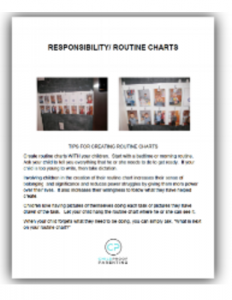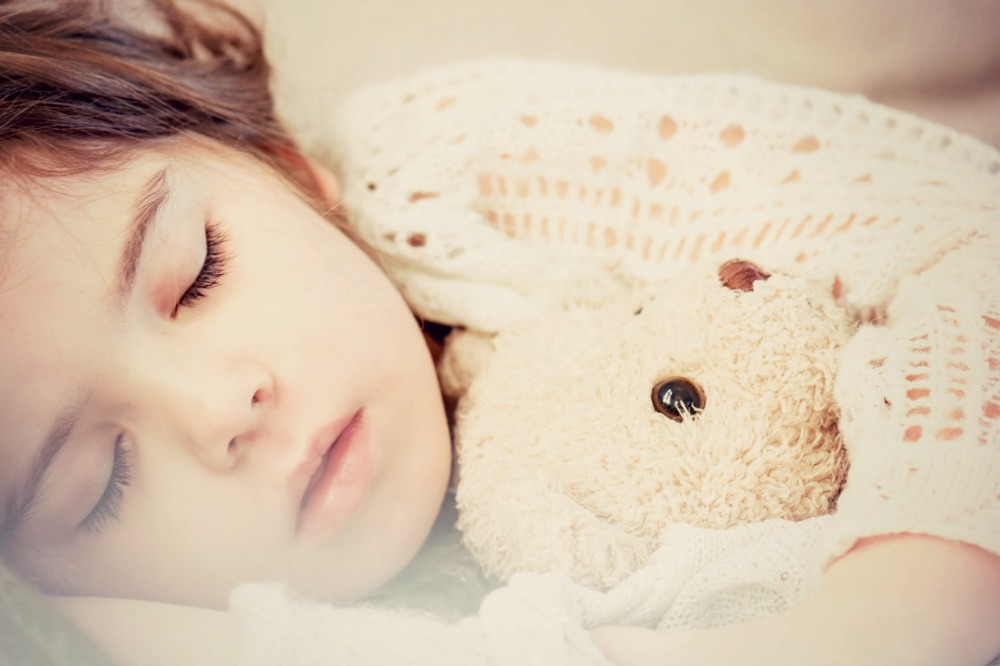Most parents don’t think of bedtime as an opportunity to connect with their child. Typically, we as parents associate bedtime with a frenzied battle zone in which we are trying to get our child to cooperate and complete tasks such as taking a bath, brushing their teeth, or putting on jammies. In order to make the most of this window of time, I suggest two things:
Tip #1: Use a Bedtime Routine Chart
Having a routine/responsibility chart will create more clarity and consistency, which can help make bedtime smoother, especially when your child would rather be doing other things. Researchers believe that the brains in both humans and animals have evolved to feel calmed by repetitive behavior and that our daily rituals and habits are a primary way to manage stress. This is especially true in unpredictable environments or situations where we feel pressured, have a lack of control, or are threatened in some way.
Using the chart will help keep your child engaged and focused without you having to say no or redirect them. Their involvement in the creation of the chart will definitely create a sense of ownership and commitment. Using a routine chart will also send the message to your child that you believe they are capable and will start to reinforce self-responsibility.
It’s important to get your child involved in coming up with the 3-8 tasks that will be on the chart and have them design the cards for each task. Children love pictures of themselves doing each task or pictures they have drawn of the task. Then let your child hang the routine chart where he or she can see and reach it. Involving children in the creation of their routine chart not only increases their sense of belonging and significance but also reduces power struggles by giving them more power over their lives and increases their willingness to follow what they have helped to create.
Tip #2: Include a Bedtime Ritual of Mindfulness
Be sure that the last task on the routine chart is a ritual that helps your child to calm their body, reflect on their day, and connect to you. Using mindfulness or meditation as a bedtime ritual will allow your child to reconnect with their body. Using this practice before bed can also help your child to turn off the monkey mind (jumping from thought to thought) that can keep them up long past their bedtimes. Guided meditations can help them to reconnect to their present state and their physical bodies. This ritual also helps teach your child self-awareness by guiding them to look inside themselves and can lead to improved attention and concentration, creativity, and better social skills.
It can be even more beneficial when your mindfulness ritual includes a gratitude meditation. In addition to the benefits of using mindfulness, when you use a gratitude meditation you not only get to know and understand your child better, which leads to deeper intimacy in your relationship, but gratitude practices also lead to increased happiness and protection against stress.
Here are some great Mind Yeti bedtime sessions to try:
A routine chart that includes a mindfulness practice is a winning combo if you are seeking to make bedtime a smoother, more enjoyable experience. What are you willing to try to make your evenings a win-win for both you and your child?
Want a few tips on how to create a routine chart with your child? Download the guide below.

[irp posts=”3405″ name=”Five Effective Ways to Respond to Tantrums and Meltdowns (by Melissa Benaroya)”]
About the Author: Melissa Benaroya
 Melissa Benaroya, LICSW, is a Seattle-based parent coach, speaker and author in the Seattle area (MelissaBenaroya.com). She created the Childproof Parenting online course and is the co-founder of GROW Parenting and Mommy Matters, and the co-author of The Childproof Parent. Melissa provides parents with the tools and support they need to raise healthy children and find more joy in parenting. Melissa offers parent coaching and classes and frequently speaks at area schools and businesses. Check out Melissa’s blog for more great tips on common parenting issues and Facebook for the latest news in parent education!
Melissa Benaroya, LICSW, is a Seattle-based parent coach, speaker and author in the Seattle area (MelissaBenaroya.com). She created the Childproof Parenting online course and is the co-founder of GROW Parenting and Mommy Matters, and the co-author of The Childproof Parent. Melissa provides parents with the tools and support they need to raise healthy children and find more joy in parenting. Melissa offers parent coaching and classes and frequently speaks at area schools and businesses. Check out Melissa’s blog for more great tips on common parenting issues and Facebook for the latest news in parent education!



Leave a Reply